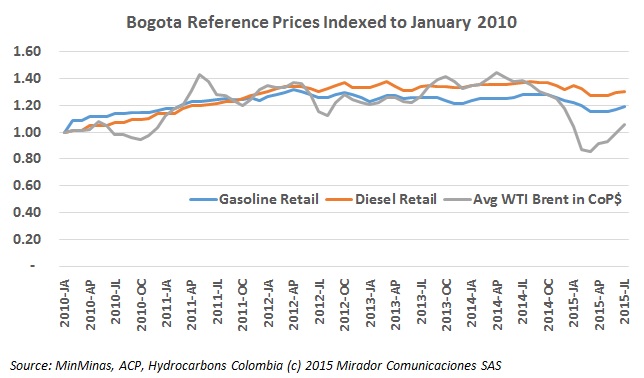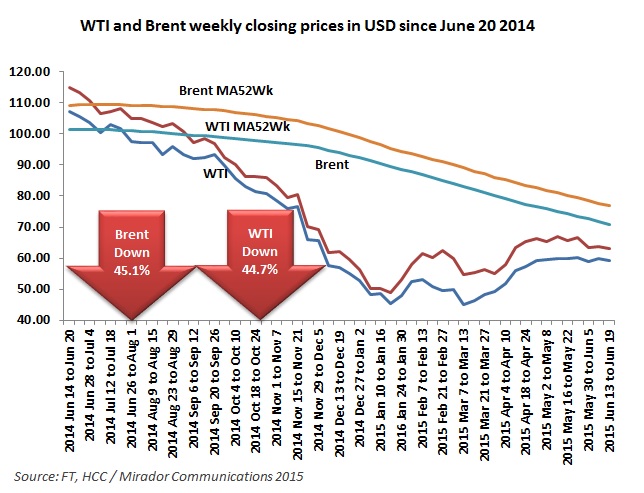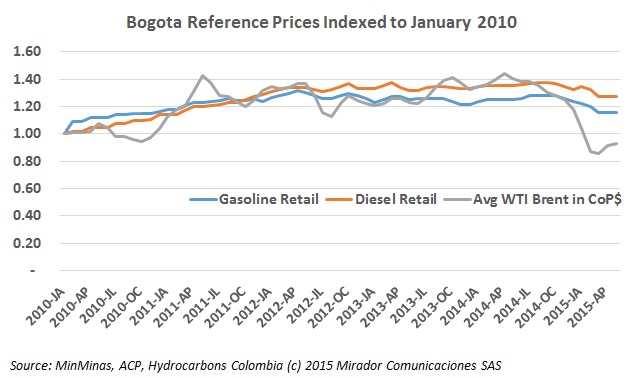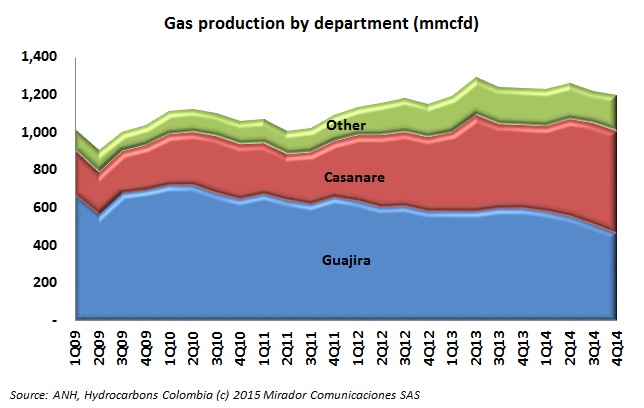We have frequently noted the disconnect between the official statistics on gas demand (as shown in the chart) and the qualitative evidence of increased domestic gas coverage and vehicle conversions.

Both gasoline and diesel prices will see a small increase in July, as observers speculate whether the entry of the Cartagena Refinery (Reficar) could translate into significant savings for consumers in the beginning of 2016.
While the official analysis for gasoline demand in Colombia expects overall fuel consumption for mobility to grow 67% in 2030 compared to current levels, the use of alternative transport means and fuels could actually contract the market by up to 25% in 2050.

In our weekly statistics, the benchmark oil prices peaked in the week ending Friday, June 20th 2014. WTI closed US$107.30 and Brent at US$114. The graph shows prices hit bottom in 1Q15 and have strengthened in 2Q15 but the futures graph below shows that traders are still not wildly enthusiastic. Nor are we.

The Ministry of Mines and Energy (MinMinas) inched fuel prices up for the first time this year, but reinforced that Colombians will not see large changes in the fuel price even if international prices climb.

With a light recovery in oil prices over the last week and a weaker dollar, there has been plenty of speculation over where the price of oil will end up in the next two years. Also in Casanare, authorities say royalties have fallen more than 80% due to the oil price crisis. These and other stories in our periodic roundup.
India’s Oil and Gas Minister Dharmendra Pradhan made a visit to Colombia as part of a strategy to increase its imports from Latin America, opening the possibility of building a cutting edge refinery to help guarantee its supply.
Responding to a report from the Ministry of Mines and Energy (MinMinas) think tank UPME which criticized subsidy support and tax breaks for biofuels, the industry association Fedebiocombustible responded, defending the use of ethanol and biofuel mixtures and rejecting the notion that it receives such benefits.

The Ministry of Mines and Energy (MinMinas) says prices will remain stable, while its own think tank questions the cost of subsidies to keep the price from rising.

Yesterday we asked where Colombia’s supply of gas was coming from and today’s graph gives a hint.